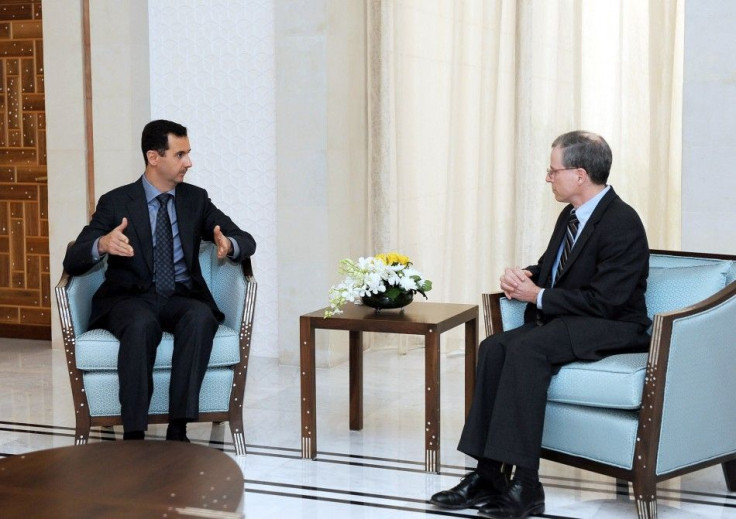U.S. Ambassador Returns to Syria, U.S. Supports Opposition

The U.S. ambassador to Syria, Robert Ford, returned to Damascus on Tuesday after being removed from the country for his own safety in October.
Ford arrives a day after 50 anti-government protestors were reportedly killed during escalating violence that some observers think is leading to a civil war. Ford has publicly supported Syria's opposition movement, which has lead to death threats and an attack on the U.S. embassy by supporters of President Bashar al-Assad.
“His return demonstrates our continued solidarity with the Syrian people and the value we place on Ford’s efforts to engage Syrians on their efforts to achieve a peaceful and democratic transition,” the White House said in a statement.
“We believe his presence in the country is among the most effective ways to send a message to the Syrian people that the United States stands in solidarity with them.
Vice President Joe Biden had similar remarks, saying that the United States is still thinking about the best way to handle the Syrian uprising but is not considering any drastic moves.
(To) the extent we talked about any 'what-next' steps, there were generic discussions about having to go in and provide some help and possibly economic assistance and stability, not militarily, but helping the Syrians, Biden said after a visit to Turkey.
We're in this to see Assad come down and then determine what would be the most helpful thing for the international community to do to establish stability in that country.
France's ambassador to Syria also arrived on Monday after leaving the country in November.
On Tuesday, the Obama administration also showed its support for the anti-government protestors. U.S. Secretary of State Hillary Clinton met with opposition leaders at a hotel in Switzerland to hear their plans on a new government, should the Assad regime fall.
“Obviously, a democratic transition is more than removing the Assad regime. It means setting Syria on the path of the rule of law,” Clinton told the exiled activists.
The ongoing conflict in Syria has left an estimated 4,000 people dead, according to the United Nations. Despite harsh international criticism from his former-allies in the Arab League, as well as from most other nations, Assad has so far refused to end his crackdown against protests in the country.
The latest attempt to stop the violence included a suspension from the Arab League and a wave of new sanctions against Syria.
© Copyright IBTimes 2025. All rights reserved.





















